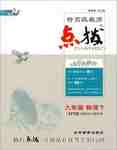题目内容
2.Okay,you are in the classroom,you've got the proper attitude,your instructor seems eager and energetic and you're ready to learn.Your instructor starts (21)C.You listen to the first few words and then begin to take notes.Copious notes.At the end of 45minutes you have literally rewritten the(22)B.Your hand is sweaty from the constant writing and you've filled up seven pages of your notebook.But one thing is(23)A.You forgot to listen to the lecture.This is a (24)C problem in all classes.You are so afraid that you might miss something"important"that your tendency is to write(25)D down.We all do because we have all committed this (26)D at one time or another.I realize it's easy for me to say this,but it is much better to listen to the lecture carefully and(27)A only those things that were genuinely important.
It goes without saying that your notes should be written readably.I wouldn't suggest rewriting your (28)B after every class but sometimes this will help you understand and recollect the material better.Organize your notes into brief(29)B.Use arrows,stars,asterisks and other notational devices to highlight things that seem really important.As a rule,if there is anything you don't understand,bring it up during the next class period.If not,you will be doing yourself,and everyone (30)D in the class,a great injustice.
| 21.A.speaking | B.saying | C.talking | D.discussing |
| 22.A.speech | B.lecture | C.lesson | D.class |
| 23.A.missing | B.going | C.losing | D.leaving |
| 24.A.average | B.ordinary | C.common | D.usual |
| 25.A.anything | B.something | C.nothing | D.everything |
| 26.A.behavior | B.action | C.fault | D.error |
| 27.A.record | B.notice | C.memorize | D.keep |
| 28.A.comments | B.notes | C.diaries | D.works |
| 29.A.styles | B.sections | C.species | D.designs |
| 30.A.rest | B.remaining | C.other | D.else |
分析 本文属于说明文阅读,作者通过这篇文章主要向我们描述了课堂上常见的问题和如何在课堂上表现,
解答 21~25 CBACD 26~30 DABBD
21.C.考查动词辨析.根据前文your instructor seems eager and energetic and you're ready to learn可知你的导师开始讲话;故选C.
22.B.考查名词辨析.根据前文listen to the first few words and then begin to take notes.Copious notes可知45分钟之后讲座结束;故选B.
23.A.考查动词辨析.根据前文Your hand is sweaty from the constant writing and you've filled up seven pages of your notebook可知你忘记你听了什么;故选A.
24.C.考查形容词辨析.这是在所有的课堂的一个常见的问题.你是如此的担心你会错过什么"重要"的东西,以至于你倾向于把一切写下来;故选C.
25.D.考查名词辨析.这是在所有的课堂的一个常见的问题.你是如此的担心你会错过什么"重要"的东西,以至于你倾向于把一切写下来;故选D.
26.D.考查名词辨析.根据后文I realize it's easy for me to say this,but it is much better to listen to the lecture carefully 可知我们都是这样因为我们都犯了这个错误,一次又一次的;故选D
27.A.考查动词辨析.根据句意我意识到我说这很容易,但是更需要的是更仔细地听讲座,只记录那些真正重要的东西;故选A
28.B.考查名词辨析.根据句意不用说,你的笔记应该写的方便阅读;故选B.
29.B.考查名词辨析.根据后文Use arrows,stars,asterisks and other notational devices to highlight things that seem really important可知要整理你的笔记为简短的部分;故选B.
30.D..考查形容词辨析.如果没有问题就做你自己的,其他人在课堂上也一样;故选D.
点评 考察学生的推理判断能力和联系上下文的能力,在做推理判断题不要以个人的主观想象代替文章的事实,要根据文章事实进行合乎逻辑的推理判断.此类的填空题一定要联系上下文,根据上下文的内容加上自己的理解,再作出正确的判断

 特高级教师点拨系列答案
特高级教师点拨系列答案--In my opinion,it is for our team to win.( )
| A. | probably; likely | B. | possible; probably | ||
| C. | likely; probably | D. | likely; possible |